Justice has failed us: India gang-rape victim's father
India's Supreme Court Monday rejected an appeal against the release of the youngest convict in a fatal gang-rape
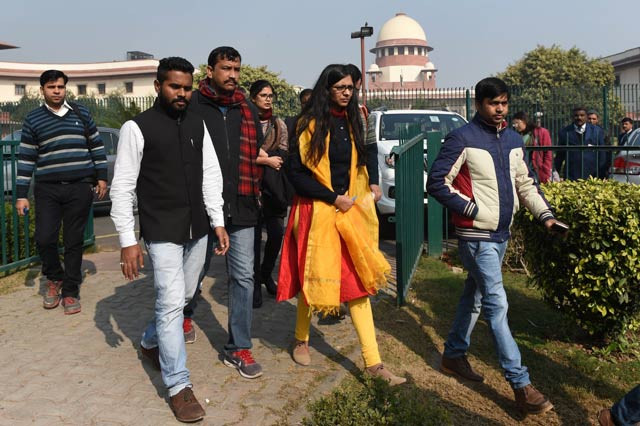
Delhi Commission for Women chairwoman, Swati Maliwal (C) arrives at the Supreme Court in India on December 21, 2015. PHOTO: AFP
"What can I say? There are no words to describe our disappointment," Badrinath Singh, the father of the victim Jyoti Singh, told AFP.
Delhi gang-rapist freed from youth detention
"We don't understand all these laws. We only know that the system has failed us."
Court rejects plea to reverse Delhi gang-rapist's release
India's Supreme Court Monday rejected an appeal against the release of the youngest convict in a fatal gang-rape as the victim's parents vowed to step up protests, demanding he be put back behind bars.
Amid outrage at the freeing of the 20-year-old, judges said there were no legal grounds to allow a petition by the Delhi Commission for Women, which had wanted to reverse his release from a youth correctional facility.
 Delhi Commission for Women chairwoman, Swati Maliwal (C) arrives at the Supreme Court in India on December 21, 2015. PHOTO: AFP
Delhi Commission for Women chairwoman, Swati Maliwal (C) arrives at the Supreme Court in India on December 21, 2015. PHOTO: AFP"The Supreme Court has dismissed our plea in the absence of any specific legislation. He cannot be detained any further," said the commission's chairwoman Swati Maliwal.
Indian court declines to lengthen jail time for Delhi gang rape convict
"We asked for an interim order restraining his release but the court did not entertain this," she told reporters outside the court.
Sunil Madhok, a lawyer for the petitioners, said that "the court is constrained because there is no clear legislative sanction".
"In the absence of that, the juvenile cannot be detained," Madhok told reporters.
Paramilitary-style police had been stationed in force at the court before the hearing over fears that it would become the new focus of public anger, according to an AFP repoter at the scene.
Hundreds of people demonstrated Sunday near Delhi's India Gate monument before the protest was broken up, in an echo of mass protests in December 2012 immediately after the attack.
India bans broadcast of gang-rapist documentary
The victim's mother, Asha Devi, was dragged away by police who had imposed prohibitory orders in the high-security area while her father Badrinath Singh was bundled onto a bus.
"We were doing all this peacefully. I don't know why the police did this and shoved us in a bus. They kept driving us around for three or four hours and the same treatment was meted out to my wife," said the father.
"The attitude of the police was not right," he told reporters late Sunday.
His wife vented her anger at Prime Minister Narendra Modi's government, which has voiced its unhappiness that the rapist, who was 17 at the time of the attack on December 16, 2012, is now a free man.
No shame in naming daughter: gang-rape victim's mother
"The government is not doing any thing for us, it is not doing anything for our daughter," said Devi.
Despite the break-up on Sunday, the parents are due to attend a fresh demonstration at around 2:00pm on Monday at Jantar Mantar, a traditional protest venue which is close to parliament.
"We will not stop our fight here," said the father. "We will now intensify our protest as my daughter has not got justice."
The convict, who cannot be named for legal reasons, was one of a group of six who abducted Jyoti Singh, a 23-year-old physiotherapy student, after she had spent an evening at the movies with a male friend.
They lured her onto an off-duty bus and then took it in turns to rape her and violate her with a metal rod before throwing her onto the road. She died of her injuries nearly a fortnight later in a Singapore hospital.
Indian girl beheads son of ‘her rapist’
One of the six committed suicide while on remand in prison and the other four adult attackers were given the death penalty for the attack, although the sentence has yet to be carried out pending an appeal.
The youngest of the convicts was sent to a juvenile correctional facility for a three-year term -- the maximum allowed under Indian law.
News that he had been freed from the correctional facility and was now being sheltered by a charity was only revealed on Sunday when the juvenile justice board signed his release papers.
However police sources said that he was in fact handed over to the charity -- which has not been named over fears of an attack on its premises -- on December 9.
The convict's lawyer said his client would like to have gone back to his family home in the state of Uttar Pradesh but feared for his safety if he did so.
"He is free and at the shelter home and will come out in a few days," the lawyer, AP Singh, told the Indian Express newspaper.
"He was supposed to go back home but there are protests there and OB (television outside broadcast) vans have come. We haven't even been able to speak to his mother."
Under Indian law, the victim of a sex attack cannot be named but the parents last week called for people to use Jyoti's name in a bid to end the stigma often attached to victims.

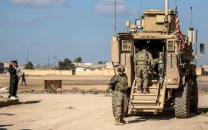
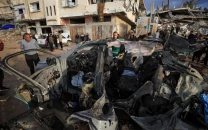


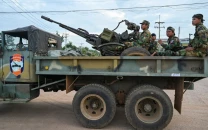
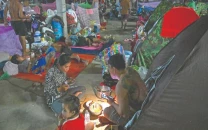












COMMENTS
Comments are moderated and generally will be posted if they are on-topic and not abusive.
For more information, please see our Comments FAQ